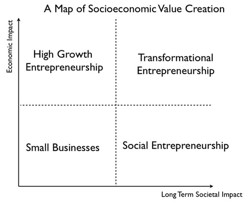Several days ago I came across this commercial by HTC. It featured a photography student trying to capture someone freefalling during skydiving using the new HTC 1. As an owner of an HTC phone myself, I loved this ad. Earlier this week, I then stumbled upon this article by HBR on capturing life’s moments. The article argues we’re obsessed with capturing, rather than savoring, moments. Social media has encouraged this behavior even more.
Social media has certainly influenced my desire to capture more of life’s moments. I’ve always had a desire to travel to new places, experience new cultures, and interact with local people. I think this urge stems in large part from growing up in one of the world’s most isolated places: Hawaii. I love the fact that I was born and raised in what many call a land of paradise, but my aptitude for geography at a very young age made me yearn to leave and visit the places that I’d read about for so long.
Over the past decade, I’ve visited many places that I would’ve never dreamt of experiencing as a kid. In the eighth grade, I placed in a competition that enabled me to go to Washington DC. For most people from Hawaii, traveling to the East Coast is often a once in a lifetime experience. At the time, it was certainly the case for me. (I never thought that a decade later, I’d be living in this city.) I don’t remember taking many pictures during the trip, but I vividly recall the experiences I had at the time:
- Riding the metro, my first subway experience, ever.
- Seeing so much green everywhere while flying into BWI. I’d never seen so many trees in my life!
- Touring around The Mall. It was definitely an eye-opening experience to visit monuments that I had only read about or seen on TV.
I had a similar mindset when I won a scholarship to spend a summer in Japan. I remember:
- Visiting the Eternal Flame Memorial at the Nagasaki Peace Park
- Bathing at an onsen (hot springs) in Hakone
- Jogging along the Yokohama waterfront around Yamashita Park.
The list of memories goes on. The point is though, at the time, I never really bothered capturing these moments on film. I just wanted to soak it all in.
As I reflect on my more recent experiences, I can’t help but to think that while I tried my best to savor every new experience, I also had a strong urge to capture every moment: the aspects of daily life, the surrounding landscape, the people, the nightlife, etc. I wasn’t the only one though. Whether abroad or in the States, wherever I went, it seemed like everywhere, everyone was taking a picture of everything; e.g., what they saw, what they ate, what they did, etc. My actions during the new year countdown at Taipei 101 most demonstrably captures the shift in my attitude towards capturing versus experiencing life’s moments.
When the countdown began, I remember seeing hundreds, perhaps thousands, of arms being raised, cameras grasped, in order to capture the fireworks show. The show must’ve lasted for only five minutes. Even though the event took place only five months ago, experiencing the awesomeness of the whole event isn’t the first thing that I most vividly recall. What comes to mind is what I just described – the masses intent on capturing the moment, hoping to get a great shot.
In retrospect, I’m glad I captured the event. It’s quite likely I’ll never experience it ever again. Even with my earlier memories of DC and Japan, I wish I had photos available that accompanied my memory of those events. It’d be nice to have a collection of photos to revisit those experiences. I’ve realized though that there’s a tipping point that exists in capturing life’s moments. Capture too few and your left with nothing but the memory of the moment. Capture too many and the memory may be tainted by the desire to capture, not savor, the moment.
I believe that life’s moments should be savored, not captured. Learning how to balance the two, especially in this world of always-on social media, is an ongoing challenge that I’m working to find. Everything in moderation, including capturing moments, I suppose.

